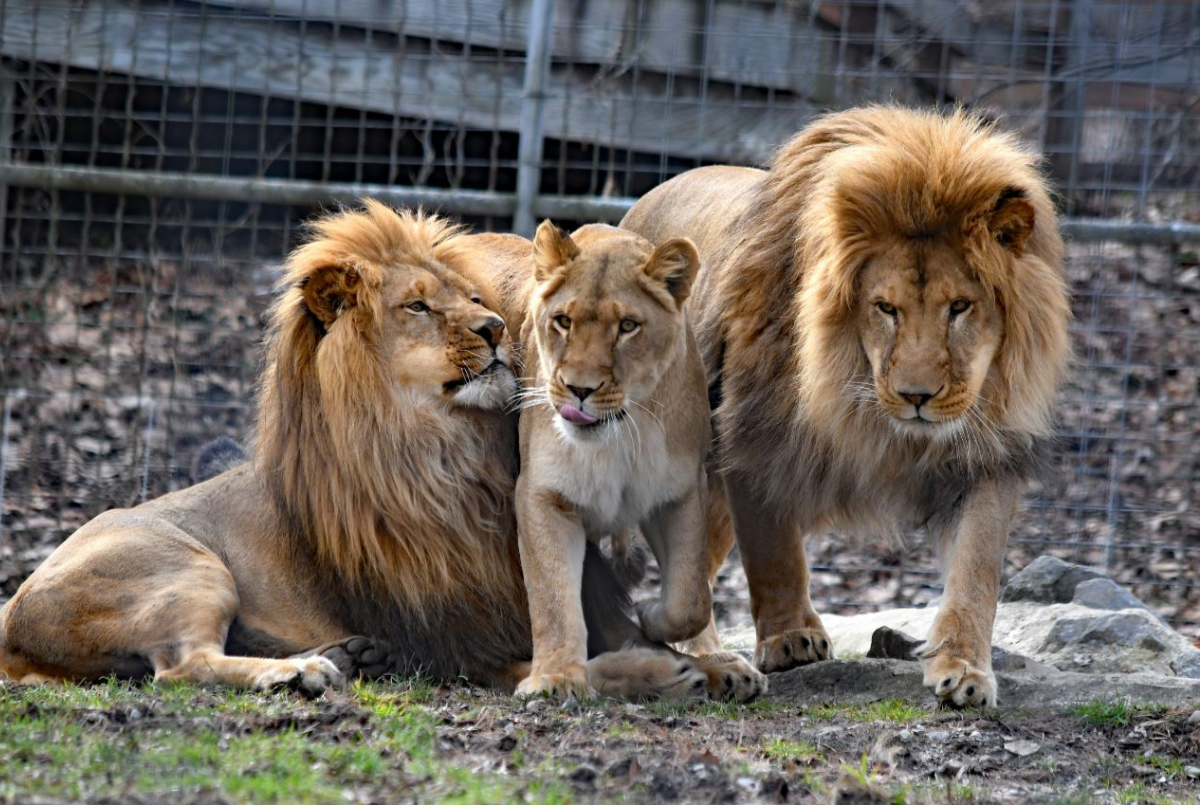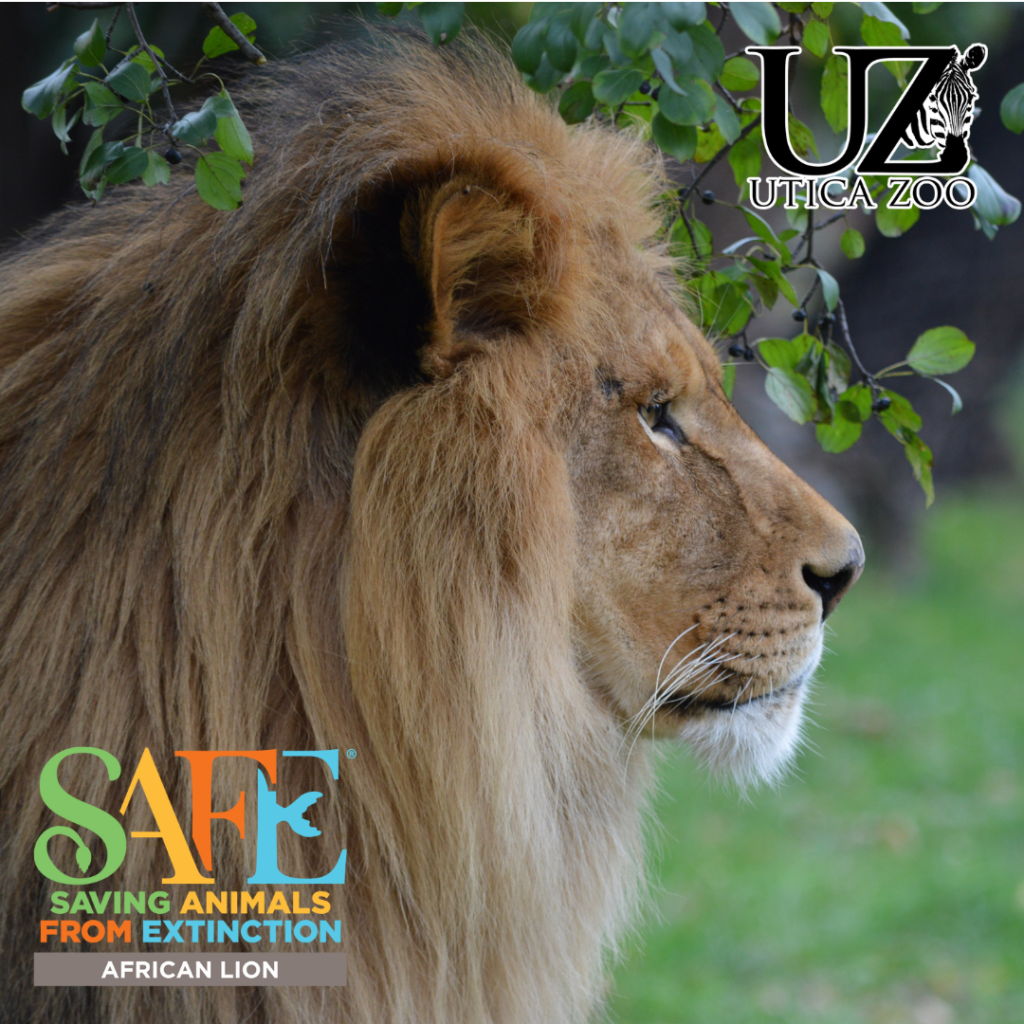African Lion

Basic Information:
Scientific Name: Panthera leo
Habitat: African Lions are found scattered across the plains and savannahs of Sub-Saharan Africa. Today, most can be found in Tanzania, Kenya, Botswana, South Africa, Zambia, and Zimbabwe.
Diet: African Lions are carnivores and eat whatever meat that they can get from small animals like hares, mice, and wild hogs to medium sized animals like cheetahs, leopards, and antelopes to large animals like baby elephants, rhinoceros, hippopotamuses, and giraffes.
Size: 3 to 3.9 feet tall / 8 to 13 feet long
Weight: 270 to 580 pounds
Lifespan: 16.9 years according to AZA Species Survival Statistics
Distribution Map:
I.U.C.N. Conservation Status:

What does this mean?
Vulnerable – a species determined by the International Union for Conservation of Nature (I.U.C.N.) to possess a high risk of extinction as a result of rapid population declines of 30 to more than 50 percent over the previous 10 years (or three generations), a current population size of fewer than 1,000 individuals, or other factors.
African Lion SAFE Program:

Saving Animals from Extinction (SAFE) is a program with the goal of using the collective expertise within AZA-accredited zoos and aquariums to save threatened species.
One SAFE animal is the African Lion. Over the past 25 years, the world’s African Lion population has been cut in half! Today there are only between 20,000 and 30,000 African Lions remaining, and they are actually missing from 92% of their historic range. This has occurred because of habitat loss, loss of prey, targeted poaching, trophy hunting, and more.
So what can we do? Step one is understanding the seriousness of this situation, and working hard to spread the message and inform the public. The next step is to work hard to create a world where African Lions can once again survive and thrive. This can happen through protecting and conserving the natural areas that lions call home and helping to nurture the wildlife there. This may seem like something difficult for you to do, but you can help by simply spreading the word among your friends and family, building the appreciation of the African Lion SAFE efforts in your community, and – of course – actively supporting African Lion conservation efforts through donating to the Lion Recovery Fund.
Want to learn even more and see ways that you can support African Lion populations? Click the link below!
Our African Lions:
Donovan (Male) – Born May 11, 2011
Murphy (Male) – Born June 6, 2012
Coky (Female) – Born June 6, 2012
About African Lions:
Despite being commonly referred to as the King if the Jungle, African Lions are not actually found in jungles and are most commonly found in savannahs. That being said, the title of “King” does a great job at showcasing how symbolic the lion has become across the world as a symbol of power and majesty. And it is easy to see why! With their huge size, flowing manes, and powerful roars, these cats are definitely a sight to behold. All this being said, African lion populations have become more and more threatened over the last few decades. While lions used to live in most parts of Africa, today fewer than 21,000 remain in all of Africa. Most of these wild lions can be found in the East African countries of Tanzania and Kenya as well as the Southern African countries of Botswana, South Africa, Zambia, and Zimbabwe where conservation efforts and wildlife preserves are more common.
Did You Know?!
- An African lion’s roar can be heard as far as 5 miles away!
- Lions are a very social cat species and prefer to live in groups known as prides. Lion prides can have up to 30 individuals which consist of related females and their cubs, plus one or more males. Females stay with their mother’s pride for life while males are usually driven out when they become large enough to compete with the dominant males of the pride.
- Male lions are usually larger than females and can be easily identified because of their manes. These manes help to protect male lions when fighting off other males.
- Although lions readily drink water when available, they are capable of obtaining all their moisture needs from the prey and – occasional – plants that they eat.
- All three of our African lions were born at the Utica Zoo and have each been sponsored and named by local families. These families help to provide funding every year to support the lions’ care!
